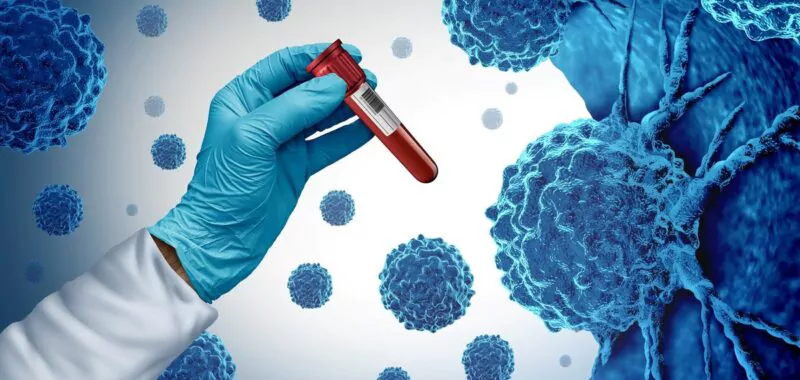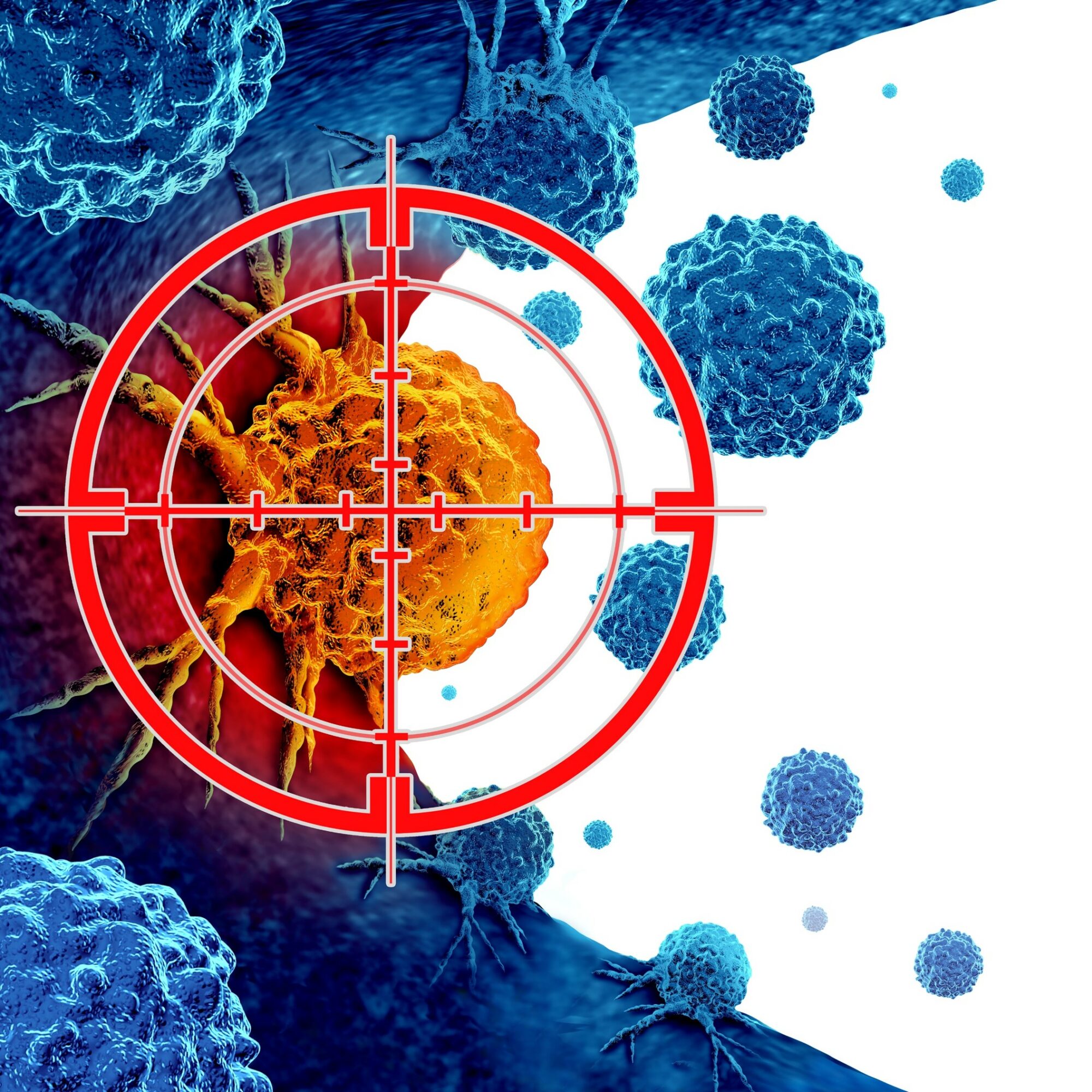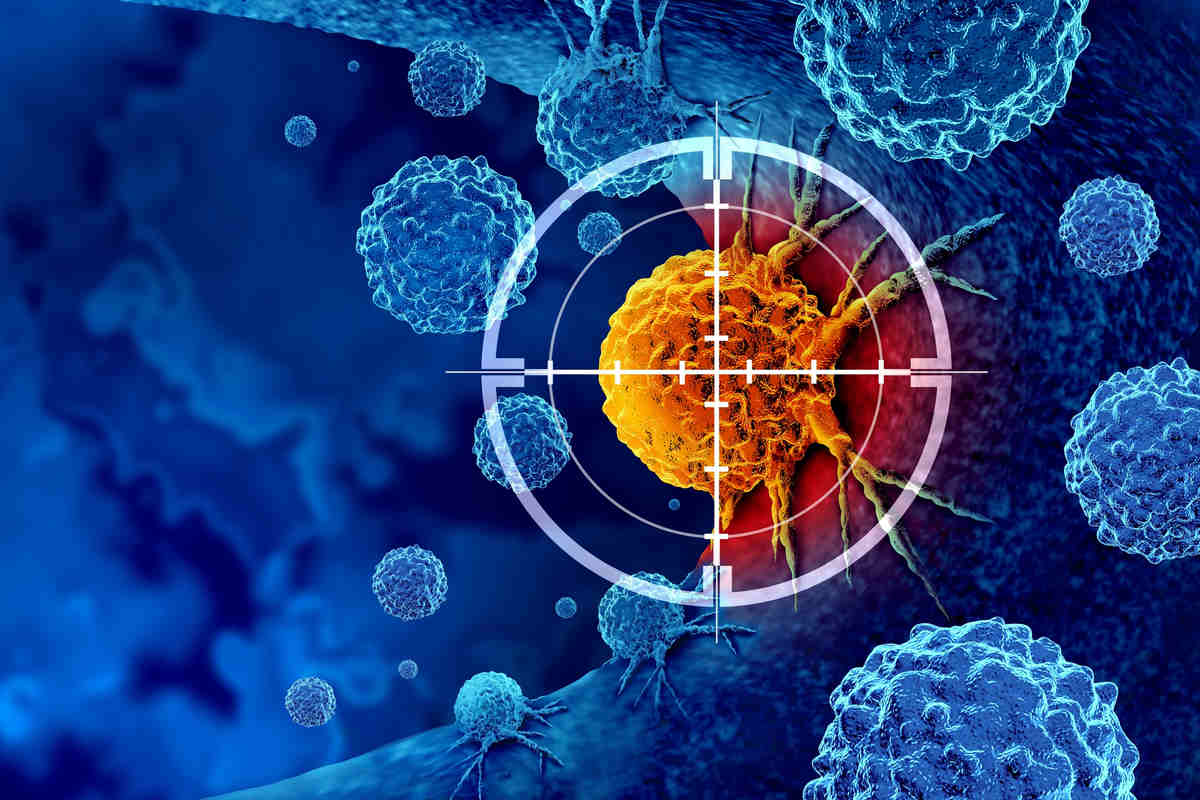What is genetic screening for cancer, and why is it essential?
The study of genetic mutations has led to the identification of new markers in oncology. This has been groundbreaking beneficial for the diagnosis, classification and choice of treatment of many cancers. The discovery of these alterations has paved the way for the identification of new therapeutic targets, and hence the development of more targeted therapies.
To utilize this precision medicine, patients must undergo genetic screening. Depending on the type and stage of the cancer, there are two possible ways of identifying the mutations involved:
- In the first instance, the test is prescribed by the onco-geneticist if the patient has a family history or a rare type of cancer. This test is prescribed primarily for risk characterization, and takes place at a relatively early stage, sometimes even before the cancer diagnosis is made. In the case of constitutional genetics, the mutation concerns all the patient’s cells.
- In the second case, the test is prescribed for a patient to guide the therapeutic strategy. If, at the multidisciplinary committee meeting, the patient is eligible for targeted therapy, they will be prescribed a molecular test, which will be carried out directly on the tumor. This is known as somatic genetics, and the mutation is only identified in the patient’s tumour to enable access to a targeted therapy. One example is the Neratinib® treatment for breast cancer, which is only administered if testing shows that the cancer cells have an amplified HER2 gene.
Over the past few years, molecular testing has seen significant growth. In 2020, 346,000 tests determining access to targeted therapy were carried out for 142,000 patients in France. In 2015, only 75,000 patients benefited.
How is genetic cancer screening organized in France?
An organization that should guarantee equitable access to tests…
Broader access to somatic tests has been facilitated by the creation of 28 molecular genetics platforms, supported by the French National Cancer Institute and the Directorate of Health Care Supply. These platforms form a network covering the whole of France, bringing together 117 laboratories that may be attached to different health establishments. The aim is to ensure that all eligible patients, regardless of the type of healthcare establishment they are attending, have equitable access to testing.
…but often comes up against structural and territorial limitations
Despite the recent structuring of the screening network, there are certain difficulties that remain in practice. Firstly, prescribing, carrying out and interpreting tests involve a multitude of players from sometimes different establishments. This can complicate coordination and lengthen turnaround times.
The choice of tests performed will also influence these timescales, as there are many different techniques available. For example, a platform using next-generation sequencing (NGS) will be able to perform several sequencing in parallel, therefore going faster than a platform using immunohistochemistry or in situ hybridization.
According to a study on the use of tests for lung cancer , there are also regional disparities in access to care. This study presented a coefficient of variation of 3.2 between departments. This inequality in access to testing is correlated to the number of general practitioners and radiotherapists in the department, and inversely with the number of surgeons. A low rate of recourse to tests is associated with the department’s poverty level.
3 current issues in genetic cancer screening in France
To meet these challenges and guarantee optimal access to current and future targeted therapies, 3 issues need to be addressed:
Issue 1: Ensuring reimbursement of tests
Today, molecular tests in oncology are not reimbursed in full. This makes it difficult for some prescribing establishments.
In fact, these tests are included in the Reference Document for Innovative Procedures Outside of the Nomenclature (RIHN). This is a closed envelope intended for the reimbursement of innovative biological procedures. Initially, the RIHN was intended to be a temporary measure, to allow the French National Authority for Health (HAS) to evaluate the procedure for reimbursement by the Sickness Insurance Primary Fund (CPAM). In reality, few tests are actually removed from the envelope and new ones are added. Consequently, there is a reduction in the rate of reimbursement per test. Currently, the RIHN reimburses around 50% of the cost of the test, with a 1-year lag.The out-of-pocket expense and delay in reimbursement are real obstacles to the prescription of these tests, particularly for establishments that do not have sufficient financial resources.
The Directorate of Health Care Supply is currently considering the possibility of including certain procedures in its nomenclature. However, it will take some time to evaluate all these procedures and catch up with the backlog. The number of molecular tests will also continue to rise over the coming years. There are currently 111 treatment-biomarker-indication combinations. A total of 375,000 biomarker tests on 205,000 patients would be needed to comply with the recommendations. Additionally, 269 new combinations could be evaluated against international recommendations in the near future.
Issue 2: Developing platform capacities and resources
The increase in molecular testing in recent years is the result of a number of factors, including the aging of the population, the diversification of targeted therapies and the constant identification of new cancer-related biomarkers. However, the human and material resources of today’s platforms are too limited to meet future demand. Not all platforms are equipped to provide all molecular tests, which may also limit prescriptions in certain territories.
To adapt to this evolution, French platforms have undertaken a transition to next-generation sequencing (NGS) techniques. This technique enables simultaneous analysis of a large number of genes. However, France currently lags far behind other countries in the field of genomic medicine, such as the UK and the USA, which have national infrastructures capable of carrying out tens of thousands of analyses a year. The Genomic Medicine 2025 plan calls for major investments, in these infrastructures to make up for this shortfall in capacity. This might require around 200 to 300 million euros,
Finally, prescribers have total freedom in their choice of laboratories to carry out the tests, enabling the emergence of a complementary offer from private laboratories. In the case of colorectal cancer, for example, the existence of rapid, automated tests that do not require the use of NGS encourages private laboratories to carry them out. The development of other tests of this type could prevent future bottlenecks in molecular testing platforms.
Find out how our team can support you in your personalized medicine projects >
Issue 3: Coordinate the players involved
Coordination between molecular biologists, pathologists and clinicians is also crucial to adapting to new treatments and protocols emerging on the market, especially as these players often work in geographically remote establishments. Streamlining multidisciplinary collaboration is imperative to ensure fast and efficient patient care.
Currently, the average time taken to obtain results from a molecular genetics platform is 2 to 3 weeks after prescription. In some regions, it can also take several months to obtain an appointment with an onco-geneticist.
Concrete initiatives to promote inter-institutional information sharing have been observed within regional healthcare establishments. For example, the Centre Léon Bernard and info-logic santé have set up ArianeRX, a tool adapted to the multiplication and automation of analyses. This has enabled the pooling of tissue, molecular and clinical patient data. Additionally, at the initiative of the ARS Centre-Val de Loire, the Tours and Chartres university hospitals are working together to set up an oncogenetic consultation service in the Eure-et-Loir region. The aim is to facilitate multidisciplinary collaboration. This will be essential for the smooth running of the consultation, and to improve the local oncogenetics network.
These examples illustrate how inter-institutional cooperation is essential today to improve cancer care across the country.
With the rise of targeted therapies in oncology, and the need to identify mutations before prescribing them, pharmaceutical companies need to ensure that centers can prescribe, analyze and follow patients through the genetic screening process. Today, however, there are several obstacles to overcome, such as funding, platform capacity and multidisciplinary coordination, to cope with the increase in the prescription of these tests.
Alcimed can help you understand the role of all the players involved, organize the ecosystem and identify potential levers. Would you like to address this topic? Please do not hesitate to contact our team.
About the authors,
Céline, Project Manager in Alcimed’s Healthcare team in France
Medine, Consultant in Alcimed’s Healthcare team in France



